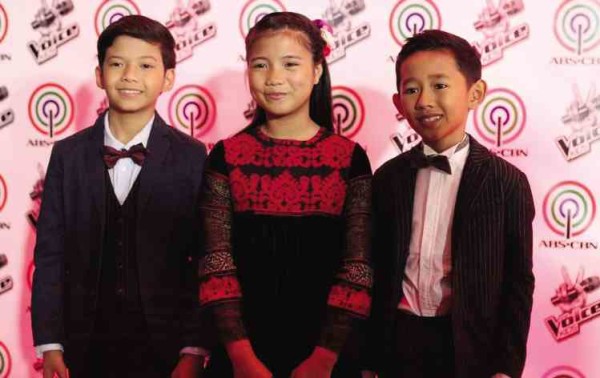Child talents remind us of the innocence and optimism we’ve lost
Now that “The Voice Kids 3” has found its winner in 11-year-old Joshua Oliveros, we can more clearly and objectively sum up its top pro and con factors:
First off, it had more misses than hits. There were too many young singers who passed the auditions who were more tween than child.
Some song choices were of the love and even lust variety, and thus not appropriate for ostensible children to interpret.
In addition, the judges-mentors called too much attention to themselves. They may have done so to keep the tilt “interesting” and edgily “competitive,” but we reacted negatively to the misplaced and displaced focus that sometimes resulted.
More: The show relied too much on its best bets’ “kawawa” backstories to grab viewers’ attention, empathy and involvement.
Article continues after this advertisementYes, homeless kids who live under a bridge deserve our sympathy and support, but superior singing should still be everybody’s primary consideration, and the show’s top reason for being viewed.
Article continues after this advertisementThere was also a nagging, niggling and needling problem with the tilt’s cohosts, who were too eager-beaver to “heat up” the proceedings with their “hyper” handling and mentoring.
Most off-putting of all was Kim Chiu’s thin, immature-sounding voice, especially when she shouted, screamed and shrieked to generate “excitement.”
TV talents should never mistake volume for “energy”—a basic lesson that Kim still has to fully assimilate even after a decade in the biz.
Now for the plus points: Despite these and other niggling notes, we’re grateful to “The Voice Kids” because it provides a necessary showcase for child singers to share their talent and give voice to their unique but vulnerable generation, which is often unheard and unrepresented in show business.
Yes, kids are all over the place on TV, but most of the time they aren’t allowed to behave and perform like the children they are.
Instead, TV people and viewers appear to mistakenly prefer young talents to perform like “little adults,” because they find it entertainingly “smart-alecky” siga and porma.
This “precocious aging” robs kids of their essential and evanescent innocence, purity, honesty and vulnerability, which should be their most important and significant contribution to the local entertainment scene.
Adult viewers want and need to remind themselves of how innocent and optimistic they were when they were children, before they became cynical and thus limited their possibilities and humanity.
We need real child singers to give us that all-important reminder, and to inspire us to revive the optimism we’ve lost.
So, we hope that the next season of “The Voice Kids” will make it a point to select really young contestants, allow them to be their “immature” selves, not sing “love or lust” songs, and focus instead on more valuable child-performance virtues like hope, inspiration and innocence.
